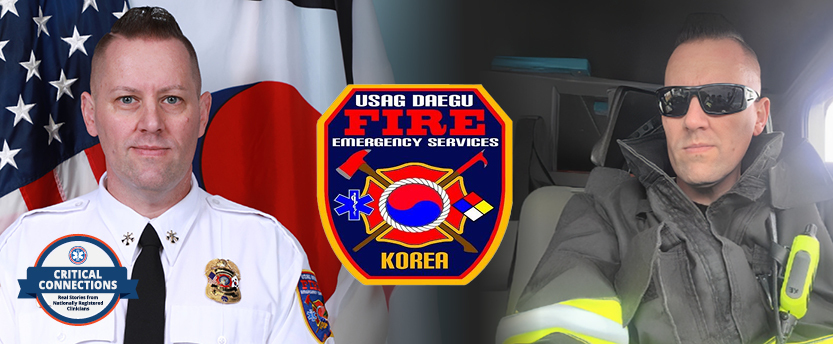Lifelong Learning and Global Service: Chief Michael Visser’s Journey in EMS
October 04, 2024

A Journey Rooted in Education and Certification
Chief Visser’s EMS career began in 1997 when he earned his first EMT certification through Rio Hondo Fire Academy in California. From there, his career took him across state lines and even overseas, working with various military and civilian fire departments. In 2015, he earned his NREMT certification—a decision that opened the doors to greater flexibility in his career.
"As a Nationally Registered EMT, it allows me to travel the world with ease, and it opens doors to places once not attainable with only a state certification," explains Visser. "Being nationally registered, I’ve been able to work in Texas, Virginia, Alaska, and now Daegu, South Korea. Having the ability to take the same certification anywhere, without having to take a test and pay more money each time, makes big changes easier."
Why National Registry Certification Matters
For Visser, the importance of holding a National Registry certification goes beyond just career mobility. It represents a standardized level of excellence recognized across the United States and internationally, ensuring that EMTs like him can meet the demands of different regions and protocols without having to go through redundant testing or training.
"Being nationally registered opens so many doors," says Visser. "It’s not just about being able to move from one state to another—it’s about knowing that wherever you go, you’re held to the same high standards of care."
This standard has been especially beneficial to Visser, who has spent much of his career working on military bases for the U.S. Army, Navy, Marines, and Air Force. Whether stationed in Texas or South Korea, his National Registry certification ensures he can operate at the same level of competency, no matter where the job takes him.
The Importance of Lifelong Learning in EMS
Beyond certification, Chief Visser is a firm believer in the power of continuous education. In a field as dynamic as EMS, where new techniques, equipment, and protocols are constantly being developed, staying updated is crucial to providing the best possible care.
"Everything changes," Visser notes. "As first responders, we learn new ways to do the same job all the time. Staying on top of the best lessons learned or a new technique is, in my mind, a best practice. It’s how we do better for our team and for safety. Taking care of your customers—your patients—should be your first priority, and you can only do that if you’re the best trained and educated to your local protocols."
The National Registry, according to Visser, plays an essential role in this ongoing education. Recertification helps ensure that EMTs across the country are prepared to handle the latest challenges and standards in emergency care.
"It’s about doing better for your team and, ultimately, for your patients,” says Visser. “The National Registry plays a crucial role in helping us do better.”
Advice for New EMS Personnel: Stay Curious and Ask Questions
For those just starting out in EMS, Chief Visser offers simple but powerful advice: stay curious and never hesitate to ask questions. Whether it's during training or on the job, he encourages new EMTs to seek out every opportunity to learn and grow.
"If you want to be the best at what you do, ask all the questions you can, even if you think they’re dumb," says Visser. "Nine times out of ten, everyone else wants to know the same thing. Don’t fear the unknown—take it as a challenge. Treat knowledge like Legos—strive to get every question answered so you can be the best for your team and patients."
Visser’s emphasis on curiosity reflects his own career, where he has continuously sought to expand his skills and adapt to new environments. His approach has not only allowed him to excel in EMS but also made him a valuable mentor to others in the field.
A Career Shaped by Military Service
Over the course of his career, Chief Visser has worked on 11 different military bases, gaining experience in various environments and learning from a diverse range of professionals. His time with the U.S. Army, Navy, Marines, and Air Force has given him a broad perspective on EMS and firefighting, helping him become a more effective leader.
"The best thing about working on military bases is all the people who I’ve learned from and helped mentor," says Visser. "I’ve worked for four branches, and it’s opened my eyes to so many different ways of doing the same job. I’ve gained knowledge and life experiences I wouldn’t have had if I stayed put in one small town. The military fire service has broadened my horizons in ways I couldn’t have imagined."
Visser’s experience in the military fire service also allowed him to take the skills he learned early in his career—starting as a Fire Explorer with the Los Angeles County Fire Department—and apply them on a much larger, more global scale.
Final Thoughts: The National Registry Makes It Easy to Stay on Track
For Chief Visser, one of the greatest advantages of the National Registry is its ease of use, particularly when managing certifications from remote or international locations. The National Registry’s online resources have made it possible for him to keep track of his recertifications, no matter where his career takes him.
"Thank you to the National Registry for the recent upgrades to their website," says Visser. "It’s so easy now to keep track of everything and be anywhere in the world while keeping things up to date!"
In a profession where the stakes are high and the demands are ever-changing, Chief Visser’s career is proof that staying educated and maintaining National Registry certification are two keys to long-term success and the highest quality of care for the communities served.
Read More Articles In The Critical Connection Series
James Avery - "An Unexpected Destiny - How One EMS Provider Discovered Sometimes Fate Has Other Plans"
Randy Brinckman - "From Special Forces to a special career"
Jessica Cervantez - "Be A Rock In The Moment People Are Falling Apart"
Savanna Coker - "Waves of change: A departure from the Baywatch narrative"
Claire Countryman & Chris Ruggiero - "The next chapter could save a life"
John Nemes - "The journey of an EMS chief"
Tom Perreault - "43 Years Down and a Lifetime to Go"
Justin Solobay - "A Night To Remember"
Meryah Wilson - "Calm and collected; an Ohio paramedic makes history with her city’s department"
Bill Wood - "50 Consecutive Years Of National Registry Certification"
Media Contact:
Shane Cartmill
Public Relations and Media Manager
scartmill@nremt.org

